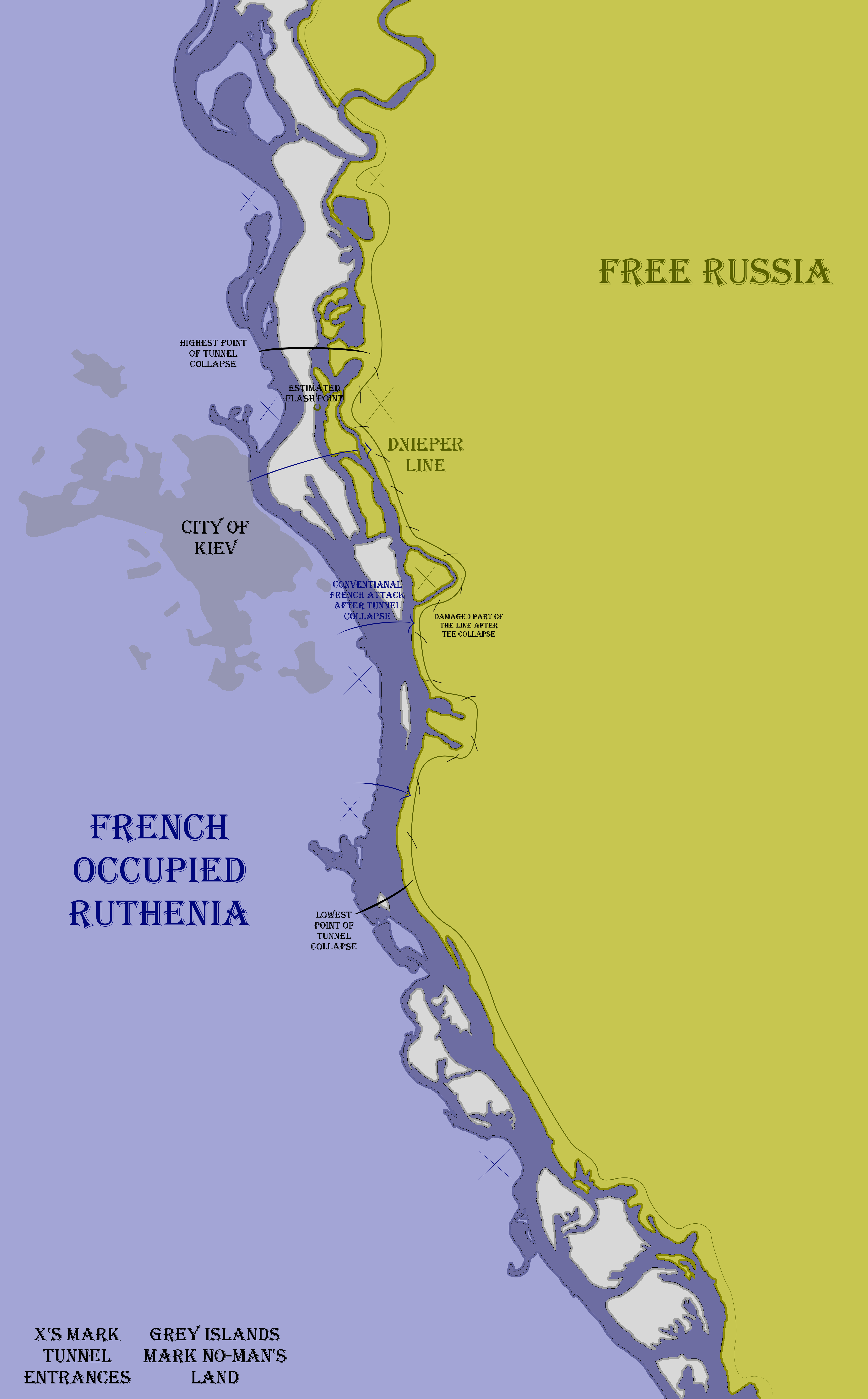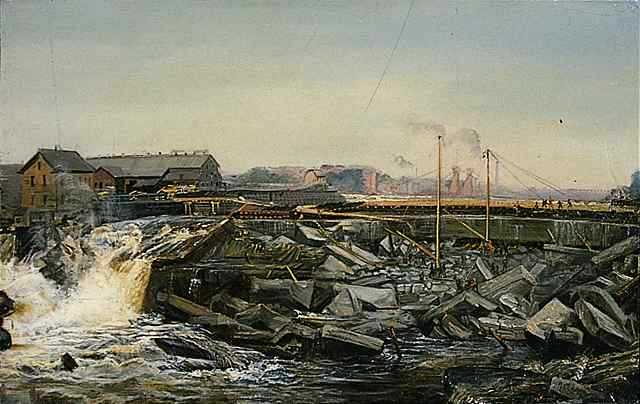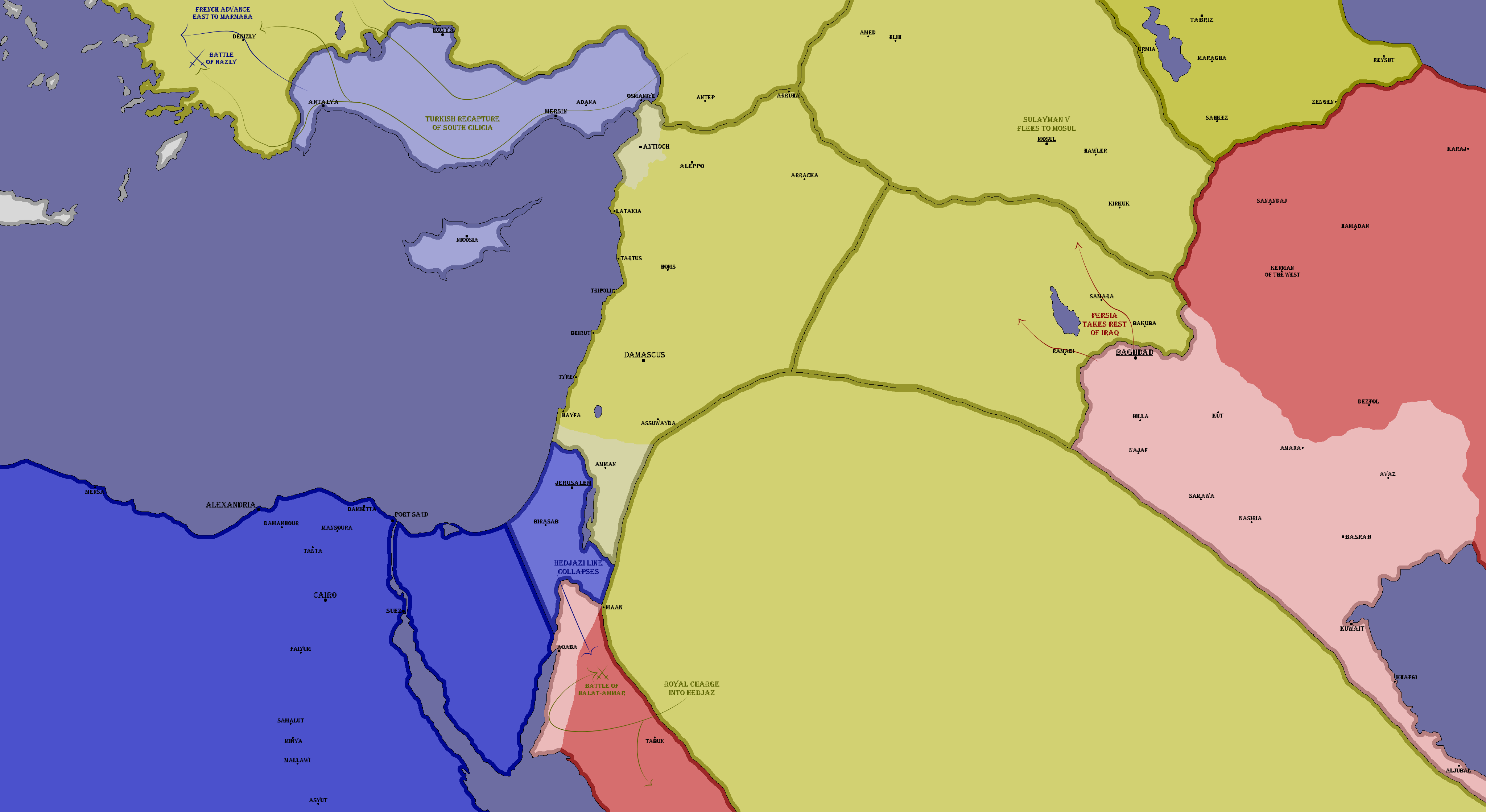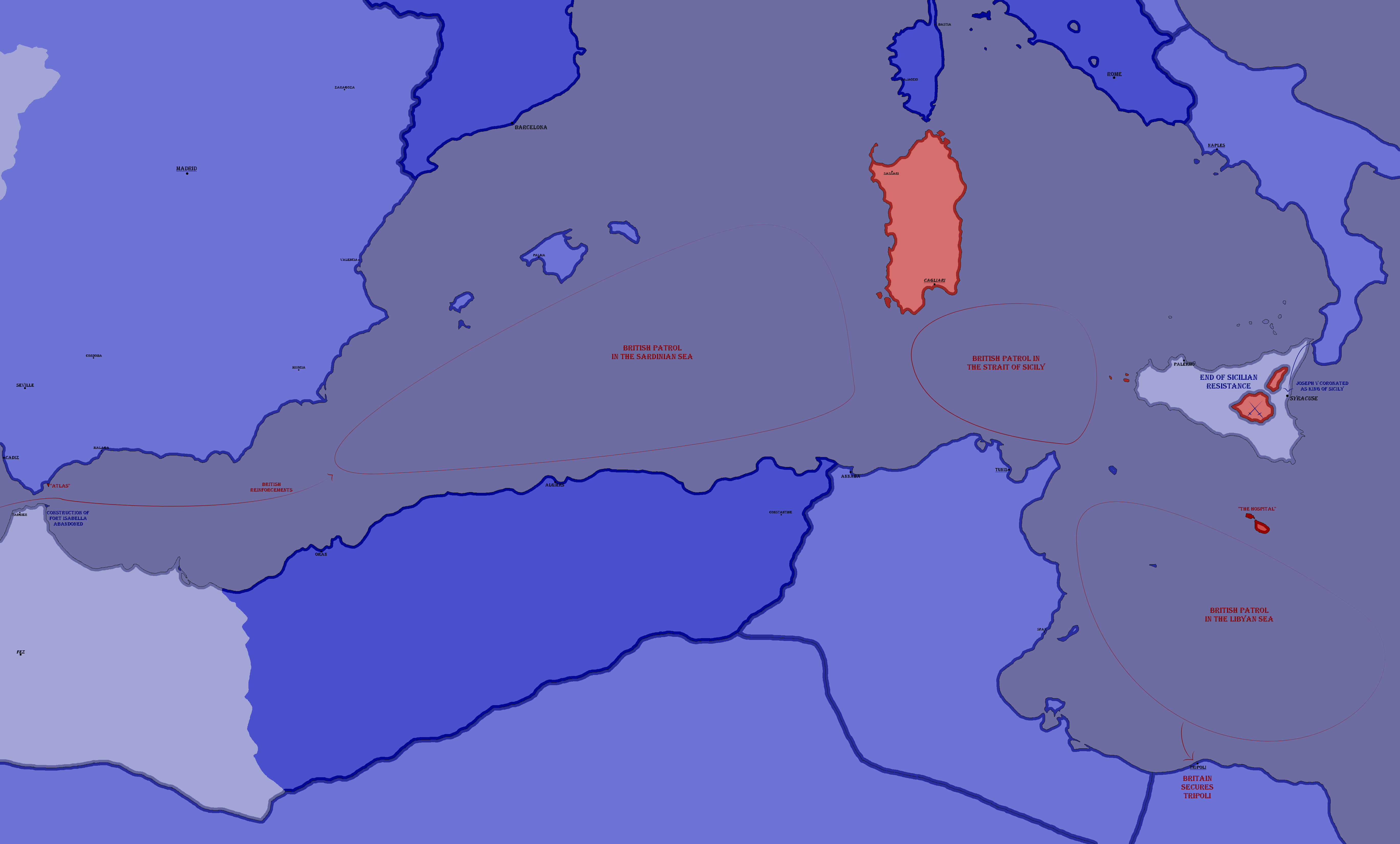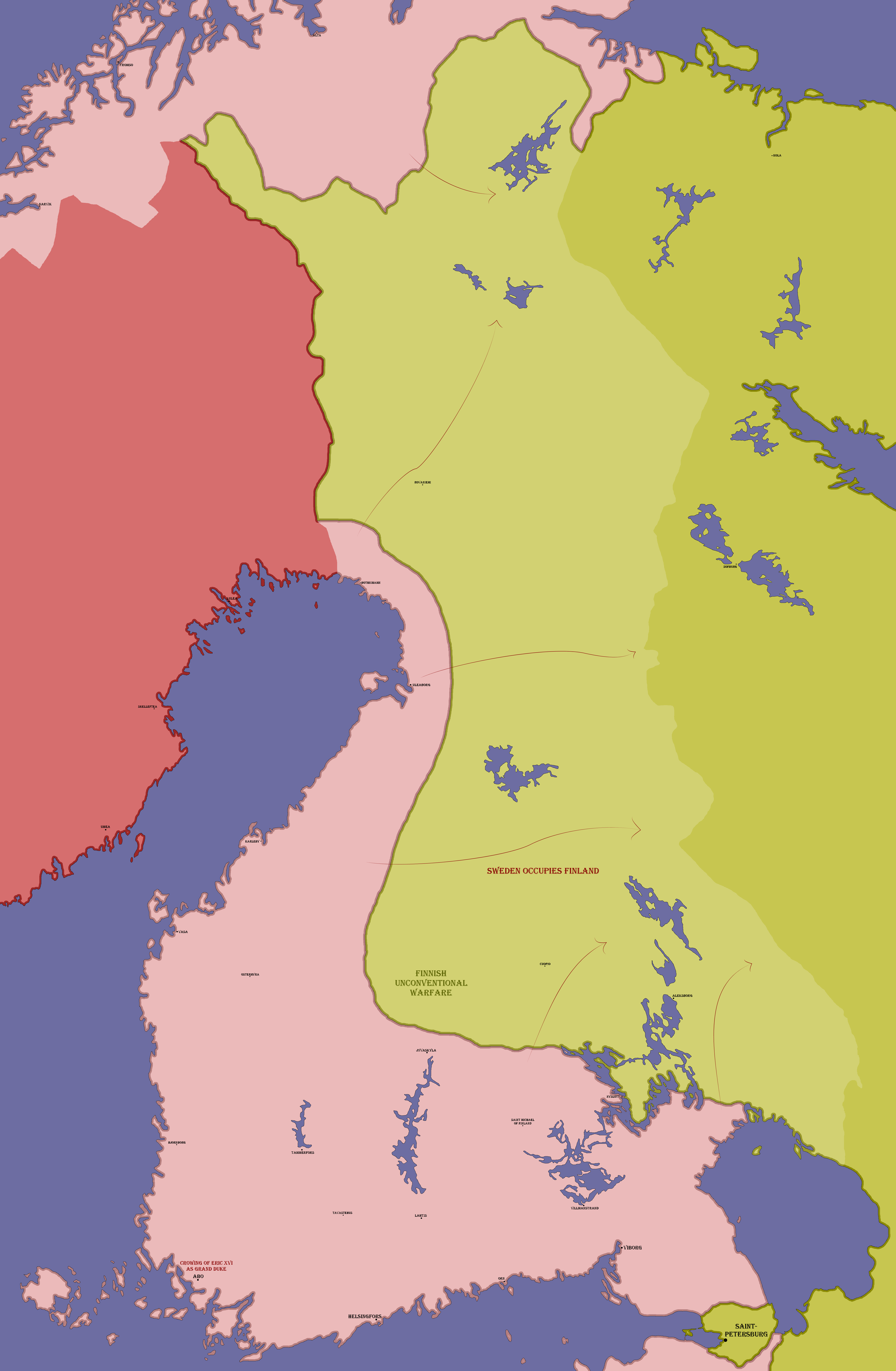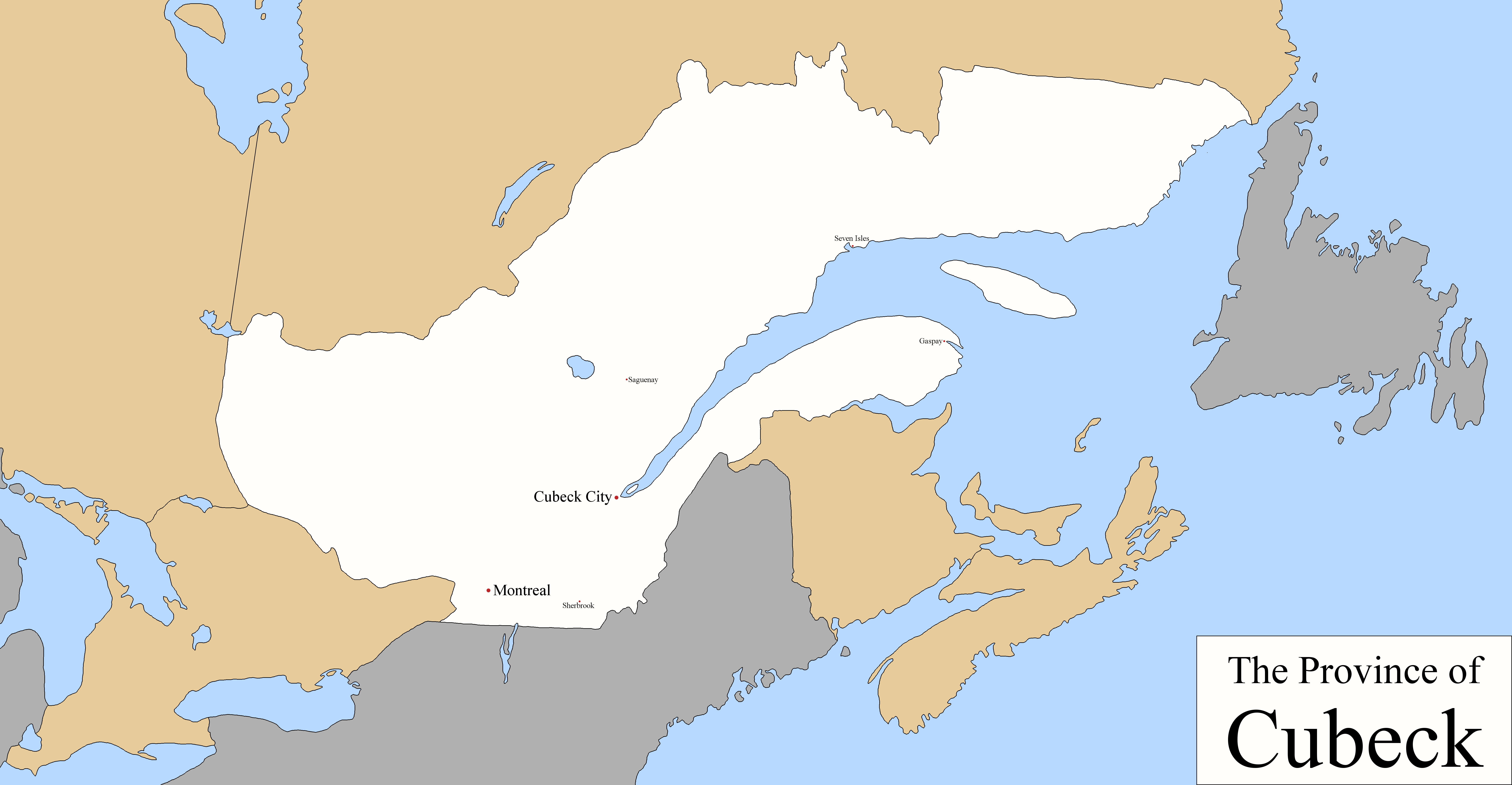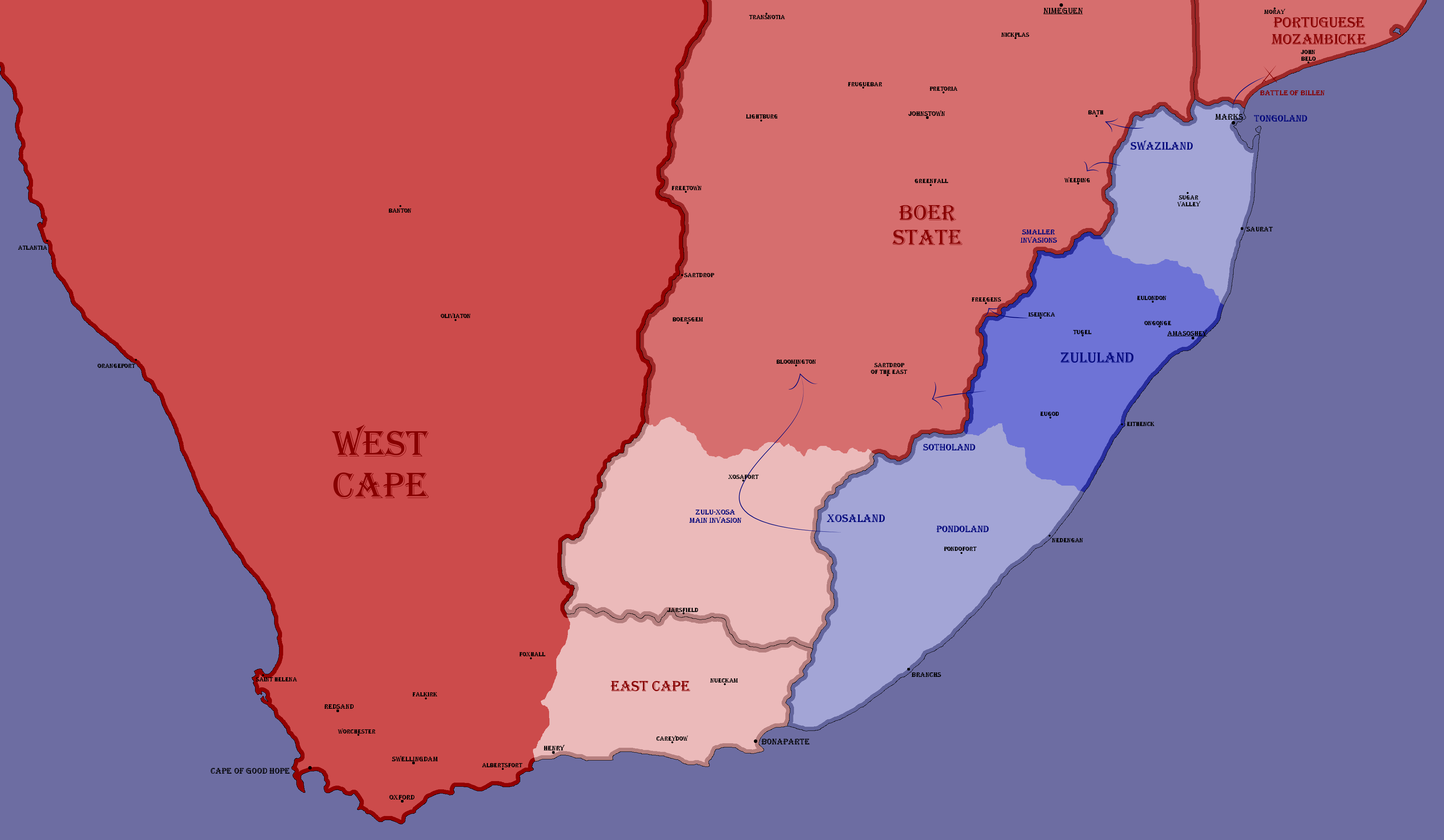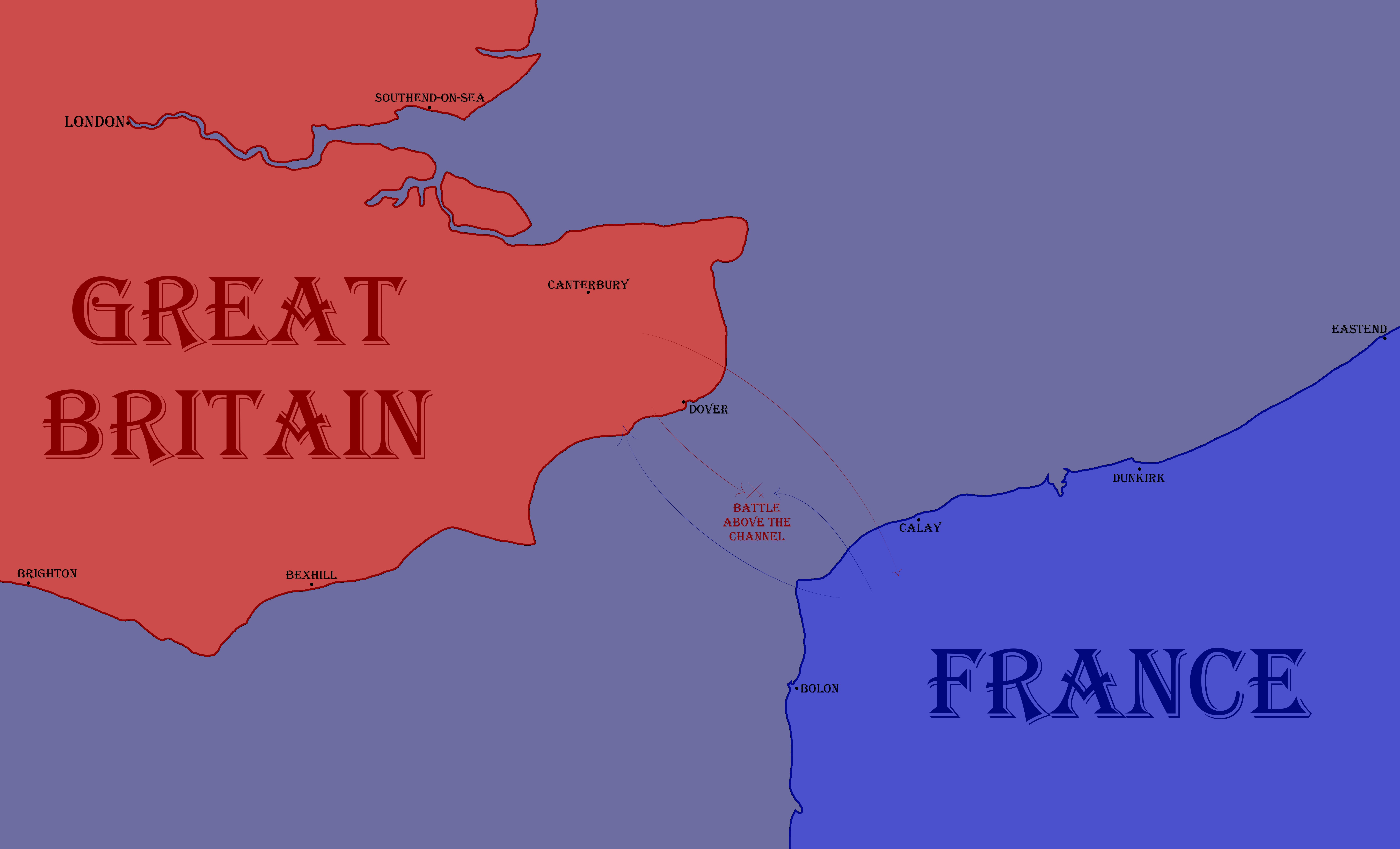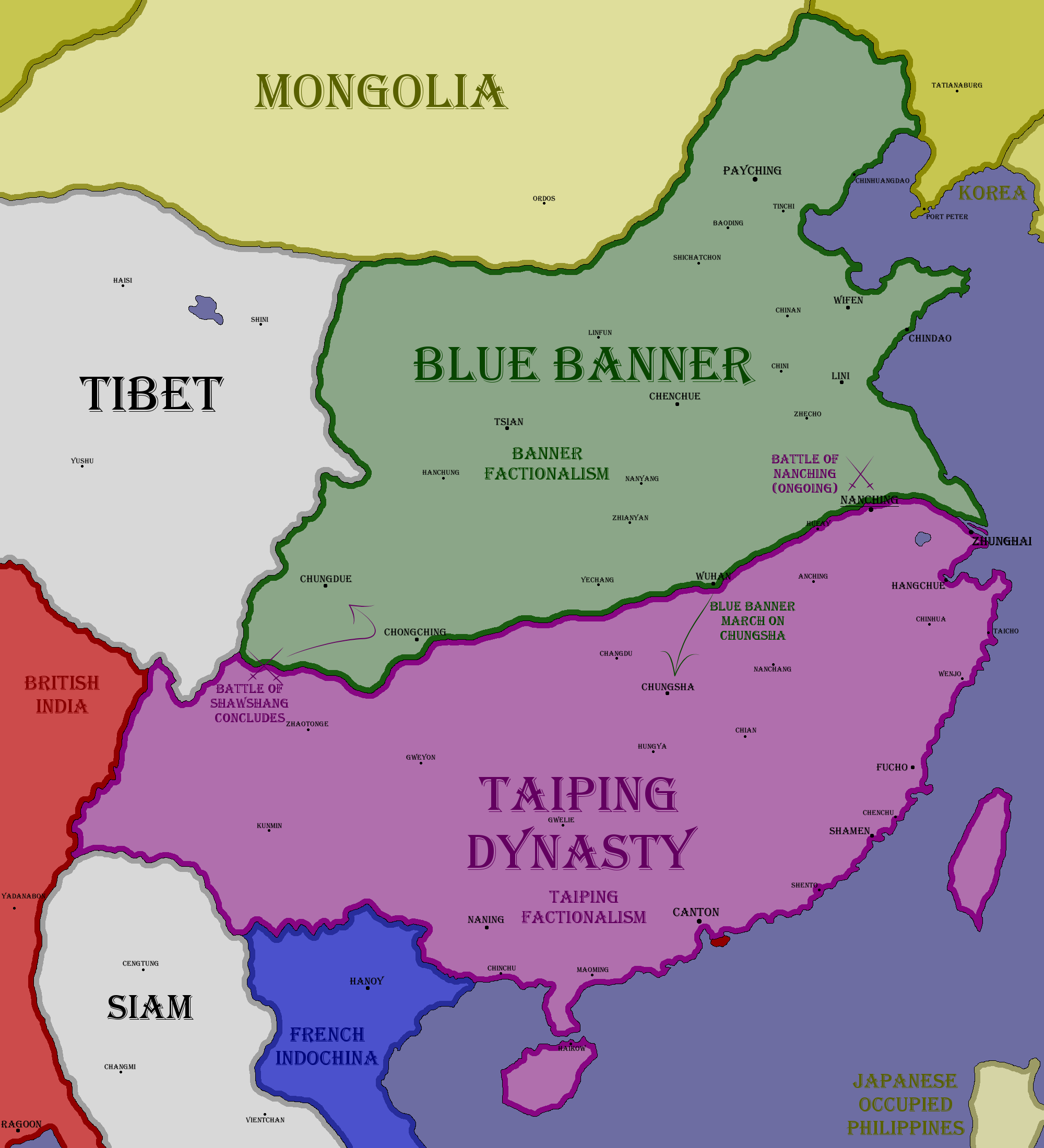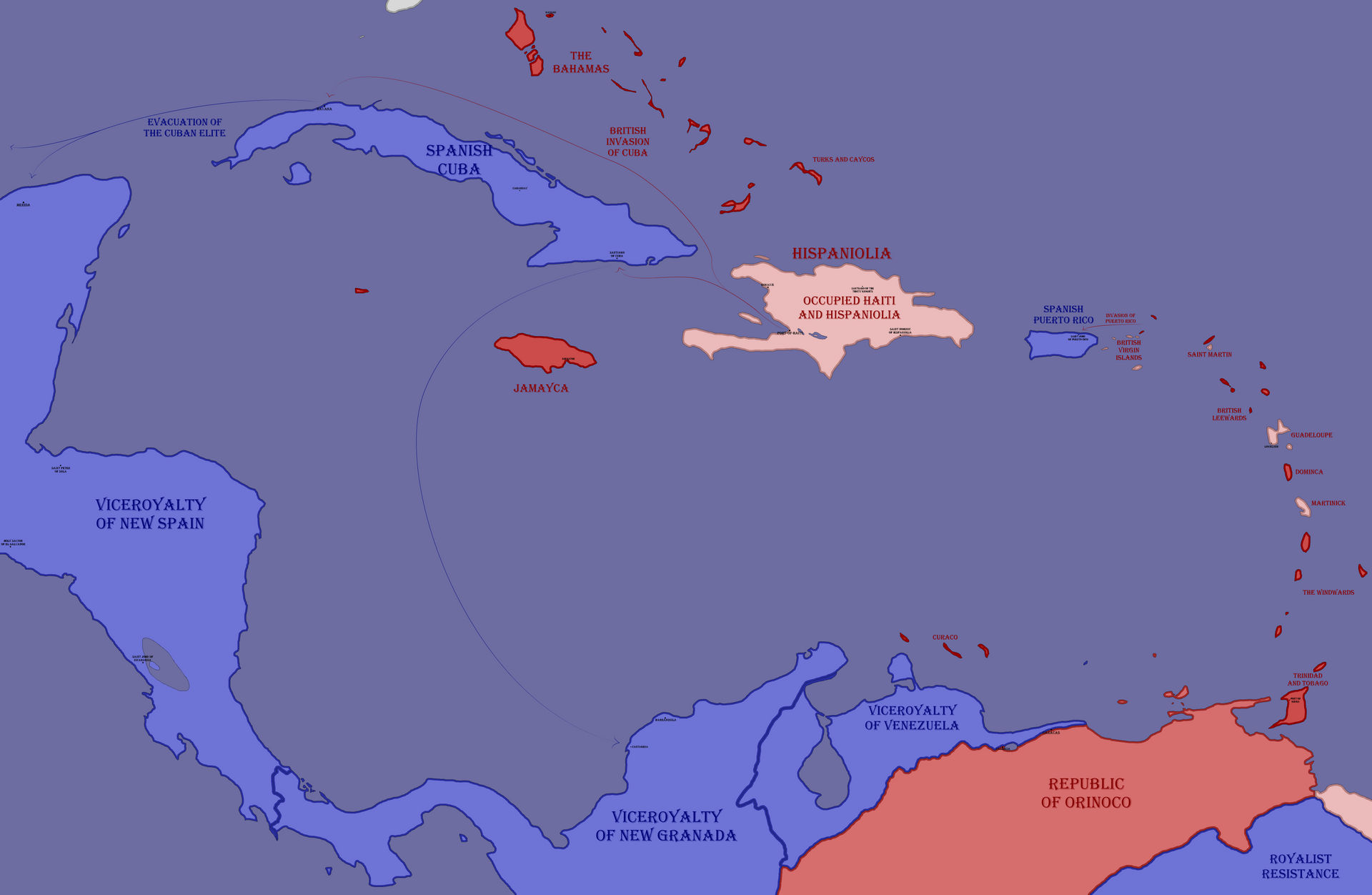Thinking about the scenario of this world, I have to say I'd like to make a ballpark guess as to what happens here. I have written about this timeline of Cultural Empires before, now I'll update my views.
French Europe is sooooo powerful omg I will never get over that point!!! The republican yet imperial form of government lends itself to some truly enormous armies. The Eastern Front in this world would be NOTHING LIKE the one IOTL, hahaha no.
The Russians and French Europeans (including maaaany Germans and fellow Slavs) have a huge amount of men between them that are more mechanized and organized in this timeline, thanks to the greater resources. That means the entire line is going to be more similar to the Western Front in our timeline... only across a MUCH more vast landscape. I can't imagine what kind of a meatgrinder that must be like. It'll be different from anything we ever experienced. Truly, the War of Russian Succession is all too likely to become more of a grim pedestal to the horrors of humankind than our Great War ever was.
The Russian Republic is going to have to fall back under the extreme military pressure. It will be nothing like Napoleon's March, it's going to be more like Operation Barbarossa, only with military technology much further behind than that conflict. Even with their advantages over their counterparts IOTL, the Russians are going to be outmatched and will have to pull back, engage in guerilla warfare, and bring forces from overseas. In the end, the Empire could indeed destroy Moscow, but I like to think they'll be stopped at the gates.
The problem is once again, logistical challenges, as well as British and American intervention. American neutrality doesn't last for long. The Consular Party decides to vote for the USA to join the war effort on the British side once the British conclude a treaty of alliance with the Russians. Surprise! Ha, people will be seeing it as a potential development far before it materializes. The more Russia loses and it appears the French are about to establish a world hegemony, the more they'll be willing to ditch their support for Peter Romanov. With American help, and after consolidating victories forces from overseas (some conflicts persist, but in most arenas overseas the French were solidly defeated by the British Navy), they land troops in the Netherlands. Using machines waraeros, primitive tanks, shotguns, flamethrowers, ooo and dare I say it, chemical weapons, they are able to sweep through the Low Country and into Germany, where a full-blown nationalist revolution has taken place in the heart of the French Empire.
For a short while, it seems like the French will throw back their united British, American, Slavic, and Germanic adversaries. The fighting is fierce. Yet eventually, the Russians finally begin to throw back the Imperial menace in one battle after another. The war is as sordid affair as any tortured soldier could dare to dream in his fevered nightmares.
Yet the Allies win. The Empire is over. The Spring of Nations spreads over Europe. Independence is granted to numerous peoples who inhabit the continent, and among them a future superpower awakens in the form of an enormous United German Republic. A new era dawns, with the League of Nations at its helm... maybe. Russia is enormously powerful, and despite their losses, China and Japan promise to be heavyweights in the new world order. Hell, the United States is due for a promotion, too, as well as the other loyal peoples under the protection of the British Crown. The British Empire becomes, well, let's just call it the British Commonwealth of Nations, come on. They have much better trade and intramigration than you'd ever think possible for an alliance like theirs.
Unfortunately, the 20th century is not one that lends itself easily to peace.
In demilitarized France, a young Bonaparte, who is nevertheless so far removed in the old line of succession that he had to go to art school before the war, is stricken by insomnia from the terrors of his experience. He begins to write more than just his memoirs, and later he'll take these writings and a sharp tongue to the cafes in Paris, and to wherever there is wine and a dark corner. He doesn't start encouraging others to support a Bonapartist restoration, though his name does give him some instantaneous charisma in the eyes of many he meets. Instead he promises a new Europe for the French people and the French people alone. An attempt had been made to entrust the inspired French culture to those whose ancestors had never braved the sacred forests and hills of the motherland in the past, and all the efforts in the world had failed. Yet that did not mean that the French spirit would not someday triumph... after all, isn't the French mind more focused on the will of the nation, more intelligent, heroic, courageous, and self-sacrificing than any other? French philosophy had much to offer, but it would have to be turned on its head in the wake of the revelation that the old rules had failed a continent. Republics, yes, and constitutional monarchies dominated Europe, but they were already growing corrupt. Despots would return and bring war back, just as it had been before Napoleon had unified the Land of the Sun. The French needed living space, and the European subhumans needed saviors. This time, they'd do everything different, and the first thing they'd do if only they could achieve power is start locking up the Slavs, the English, the Germanics, and the Jews, too, and close their businesses. It's easy to see why that has to happen first, if you'll only listen a little longer about some old books and how they relate to certain historical events most people, who are fools, have forgotten.
There's lots of young and destitute Frenchmen like him in Paris, and this young demagogue with his iconic facial hair starts drawing crowds of them. The violent, the morally confused, those longing for a greater cause, and the promise of national redemption. Eventually he makes some very shrewd, callous, and spirited friends. Unfortunately, at some point a stock market bubble and increasing tariffs causes an economic crash, and the governments of Russia, Japan, Germany, China, and the British Commonwealth can't exactly cope well with the repercussions of that whole thing. The rest is alternate history...
Consider this simply a guess from a fan! It's easy to take such obvious creative liberties with your scenario. I do wonder to what it really might lead, and what world might come of this!! Thank you so much for writing your timeline, MN, it has been so fun so far and I do hope you continue it!
